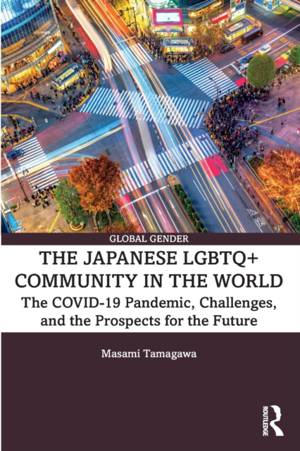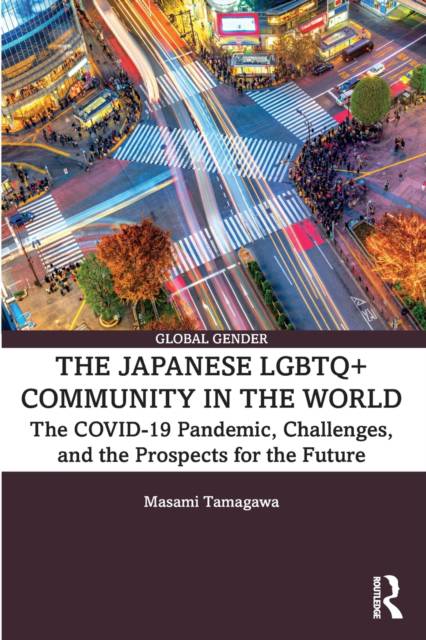
- Retrait gratuit dans votre magasin Club
- 7.000.000 titres dans notre catalogue
- Payer en toute sécurité
- Toujours un magasin près de chez vous
- Retrait gratuit dans votre magasin Club
- 7.000.0000 titres dans notre catalogue
- Payer en toute sécurité
- Toujours un magasin près de chez vous
The Japanese LGBTQ+ Community in the World
The Covid-19 Pandemic, Challenges, and the Prospects for the Future
Masami TamagawaDescription
This study of the Japanese LGBTQ+ community sheds light on the intersectionality of lived experiences, including gender, sexuality, family, (mental) health, race and ethnicity, migration, and nationality, offering a picture of a community whose experience is deeply embedded in the dynamic society around.
The Japanese LGBTQ+ Community in the World takes an innovative approach, viewing the community as an integral part of the world in flux, rather than an isolated monoracial and monolingual tight-knit entity. Like the US and many other countries in the world, when the pandemic struck Japan, its citizens were not all equally equipped to withstand it. Due particularly to lingering systemic injustices, including stigma, ostracism from family and society, as well as lack of legal protection of their basic human rights, the pandemic has disproportionately affected the lives of LGBTQ+ individuals and couples in Japan. They face unique challenges within various facets of their lives. Their experiences are an integral part of understanding how this pandemic is affecting a societal response to an already marginalized group of individuals. This important study looks at the issues from a range of perspectives including public health care services, the media and cross-cultural experience.
This book is ideal for students and scholars of gender studies, LGBTQ studies, sociology, health, and Asian studies.
Spécifications
Parties prenantes
- Auteur(s) :
- Editeur:
Contenu
- Nombre de pages :
- 292
- Langue:
- Anglais
- Collection :
Caractéristiques
- EAN:
- 9781032268873
- Date de parution :
- 30-12-22
- Format:
- Livre broché
- Format numérique:
- Trade paperback (VS)
- Dimensions :
- 156 mm x 234 mm
- Poids :
- 430 g

Les avis
Nous publions uniquement les avis qui respectent les conditions requises. Consultez nos conditions pour les avis.






